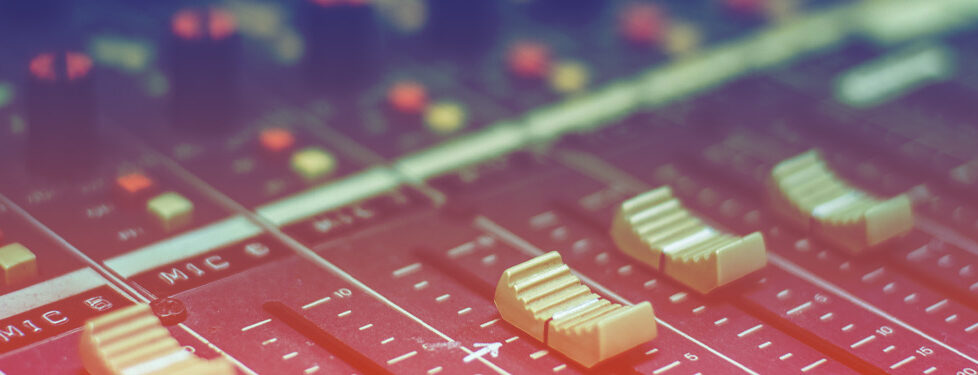Audio Engineering
AUDIO ENGINEERING CAREERS IN THE MUSIC BUSINESS
An audio engineer is someone with experience and training in the production and manipulation of sound through mechanical (analog) or digital means. The audio engineer, sometimes designated
as a sound engineer or recording engineer, is essential to the recording process, whether it be music, voice-over or live sound. Audio engineers are generally familiar with the design, installation and/or operation of sound recording, sound reinforcement or sound broadcasting equipment.

In the recording studio environment, the audio engineer is the person recording, editing, manipulating, mixing and/or mastering sound by technical means in order to realize the artist’s or record producer’s creative vision. While usually associated with music production, an audio
engineer may be involved in dealing with sound for a wide range of applications, including post-production for video and film, live sound reinforcement, advertising, multimedia and broadcasting. When dealing with video games, the audio engineer may also be a computer programmer. Some well known sound engineers include: Eddie Kramer, Phil Ramone, Steve Albini, Roger Nichols, Bill Porter, Al Schmitt and George Massenburg. Audio engineers operate mixing consoles, microphones, signal processors, tape machines, digital audio workstations, sequencing software and speaker systems. Commonly, an audio engineer is responsible for the technical aspects of a sound recording session or other audio production, and works together with a record producer or director, although the engineer’s role may also be integrated with that of the producer. If you are serious about preparing for a career in audio engineering, then you should seriously consider the Recording Connection, the only audio school that puts you inside a top, professional recording studio from day one. You’ll learn, one-on-one, side-by-side with a professional audio engineer. If you are serious about pursuing a career in audio engineering, you need to be in a real recording studio, taking part in actual recording sessions.





